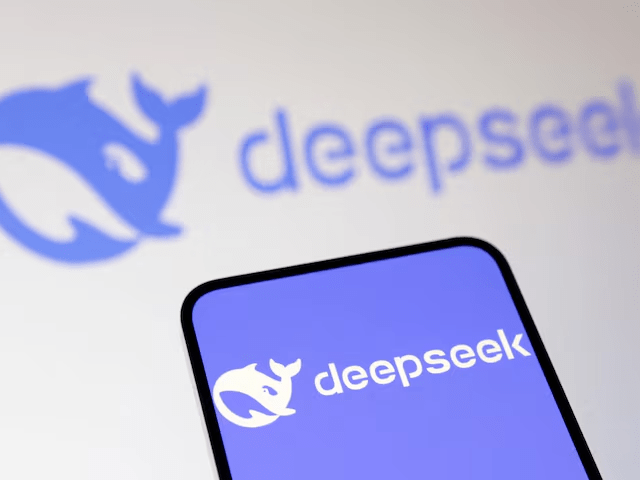US Investigates DeepSeek’s Use of Restricted Chips Amid Accuracy Concerns
DeepSeek AI Faces Scrutiny Over Chip Use and Low Accuracy Scores
The US Commerce Department has launched an investigation into whether DeepSeek, a Chinese AI company, has been using restricted US-made semiconductor chips in its AI models. This probe comes amid rising concerns about China’s rapid advancements in AI technology and their potential impact on the US tech industry.
While DeepSeek’s AI chatbot recently became the most downloaded app on Apple’s App Store, its accuracy and reliability have been called into question. A new study by NewsGuard, a trustworthiness rating service, found that the chatbot had an accuracy rate of just 17% when responding to news-related prompts, making it one of the worst-performing AI models in a competitive landscape.
The chatbot’s poor performance and potential violations of US chip restrictions have raised geopolitical, technological, and regulatory concerns in both the United States and Europe.
DeepSeek’s Chatbot Fails News Accuracy Test
83% Fail Rate in NewsGuard Audit
DeepSeek’s AI chatbot was evaluated by NewsGuard, which tested its ability to provide accurate news and information. The findings were alarming:
- 17% Accuracy Rate – DeepSeek scored just 17% in providing correct news-related responses.
- 83% Fail Rate – The chatbot failed in 83% of responses, significantly worse than the 62% average fail rate of Western AI models.
- 30% False Claims – It repeated false information 30% of the time.
- 53% Vague or Unhelpful Answers – The chatbot often provided responses that were unclear or not useful.
These statistics place DeepSeek tenth out of eleven AI chatbots tested, making it one of the least reliable AI tools for news-related tasks.
Comparison with OpenAI’s ChatGPT and Google Gemini
DeepSeek’s accuracy was notably lower than that of Western AI models, including:
- OpenAI’s ChatGPT – One of the top-performing chatbots, known for its reliability.
- Google Gemini – Considered an advanced model with better accuracy.
DeepSeek had previously claimed that its chatbot could match or even surpass OpenAI’s ChatGPT at a fraction of the cost, but these findings contradict those claims.
US Investigates DeepSeek’s Use of Banned AI Chips
Potential Violation of US Export Controls
The US Commerce Department is now looking into whether DeepSeek used advanced US-made chips that are banned for export to China. The investigation is particularly focused on:
- Use of restricted AI chips – Some of NVIDIA’s high-performance GPUs, such as the A100 and H100, are prohibited for export to China.
- Technology transfer risks – Concerns that US technology is fueling China’s AI growth despite sanctions.
- Impact on US competitiveness – DeepSeek’s rapid success raised fears that China could overtake the US in AI development.
Market Impact: $1 Trillion Wiped Off US Tech Stocks
Following DeepSeek’s sudden rise in popularity, US technology stocks saw a massive decline, with approximately $1 trillion in market value wiped out. Investors fear that:
- China’s AI progress could challenge US tech dominance.
- Regulatory loopholes may be exploited, allowing restricted technology to be used abroad.
The US government’s probe will determine if DeepSeek violated trade restrictions and whether new measures are needed to prevent unauthorized use of American technology.
Italy Bans DeepSeek AI Over Privacy Concerns
Italian Regulator Blocks Chatbot for Data Privacy Violations
In a separate controversy, Italy’s data protection authority (Garante) ordered the immediate suspension of DeepSeek’s chatbot over privacy concerns.
Garante’s investigation focused on:
- How DeepSeek collects and stores user data.
- The sources and legal basis for data usage.
- Whether sensitive personal information is being stored in China.
The Chinese AI company failed to provide satisfactory answers, leading to a ban on both the mobile app and web version of the chatbot in Italy.
DeepSeek’s Response to the Ban
DeepSeek pushed back against the ruling, arguing that:
- It is not subject to Italian regulations.
- The ban is unfair and unnecessary.
- The chatbot operates independently of Chinese government influence.
However, Garante’s decision is part of a larger European effort to regulate AI privacy practices.
Other European Countries Raising Concerns
Italy is not alone in scrutinizing DeepSeek. Regulators in Ireland and France have also raised red flags about DeepSeek’s data handling policies.
The growing European scrutiny could:
- Set a precedent for AI privacy regulations.
- Lead to broader restrictions on AI chatbots that fail transparency standards.
- Impact how AI companies operate in international markets.
DeepSeek’s Future: A Turning Point for AI Regulation?
What’s Next for DeepSeek?
DeepSeek faces multiple challenges, including:
- US Investigation – If found guilty of using restricted chips, it could face severe trade restrictions and sanctions.
- European Regulatory Pressure – Privacy violations could lead to wider bans across the EU.
- Reputational Damage – With low accuracy scores and security concerns, DeepSeek’s credibility is at risk.
The Broader Impact on AI Development
DeepSeek’s case highlights major challenges in AI regulation:
- Ensuring AI accuracy and reliability.
- Preventing misuse of restricted technology.
- Enforcing data privacy laws globally.
As AI continues to evolve, governments and regulators will likely impose stricter oversight on emerging AI companies, especially those operating across international borders.
FAQs
1. What is the US investigating DeepSeek for?
The US Commerce Department is investigating whether DeepSeek used restricted US-made AI chips, which are banned for export to China under US trade laws.
2. Why did DeepSeek’s chatbot fail the NewsGuard test?
DeepSeek’s chatbot failed 83% of the time, providing false information in 30% of cases and vague or unhelpful answers 53% of the time.
3. Why did Italy ban DeepSeek’s chatbot?
Italy’s data protection authority (Garante) blocked DeepSeek due to concerns over how it collects, stores, and processes personal data, particularly if that data is being sent to China.
4. How has DeepSeek’s success impacted the US tech market?
The rapid rise of DeepSeek led to a $1 trillion market decline in US technology stocks, as investors feared that China’s AI development could threaten US dominance.
5. Could DeepSeek be banned in other countries?
Yes. Regulators in Ireland and France have already raised concerns, and similar bans could follow if DeepSeek fails to comply with international privacy and security standards.



